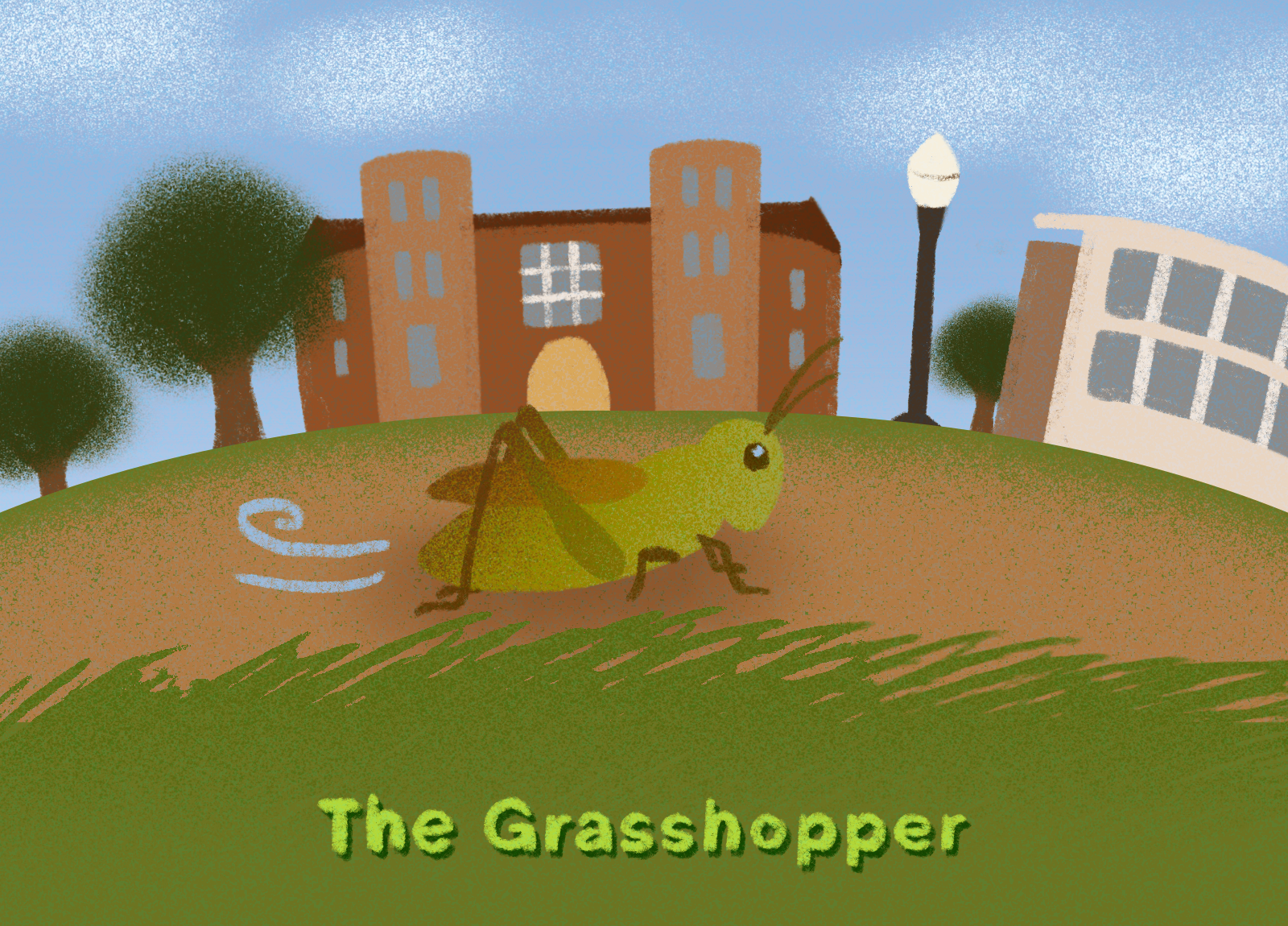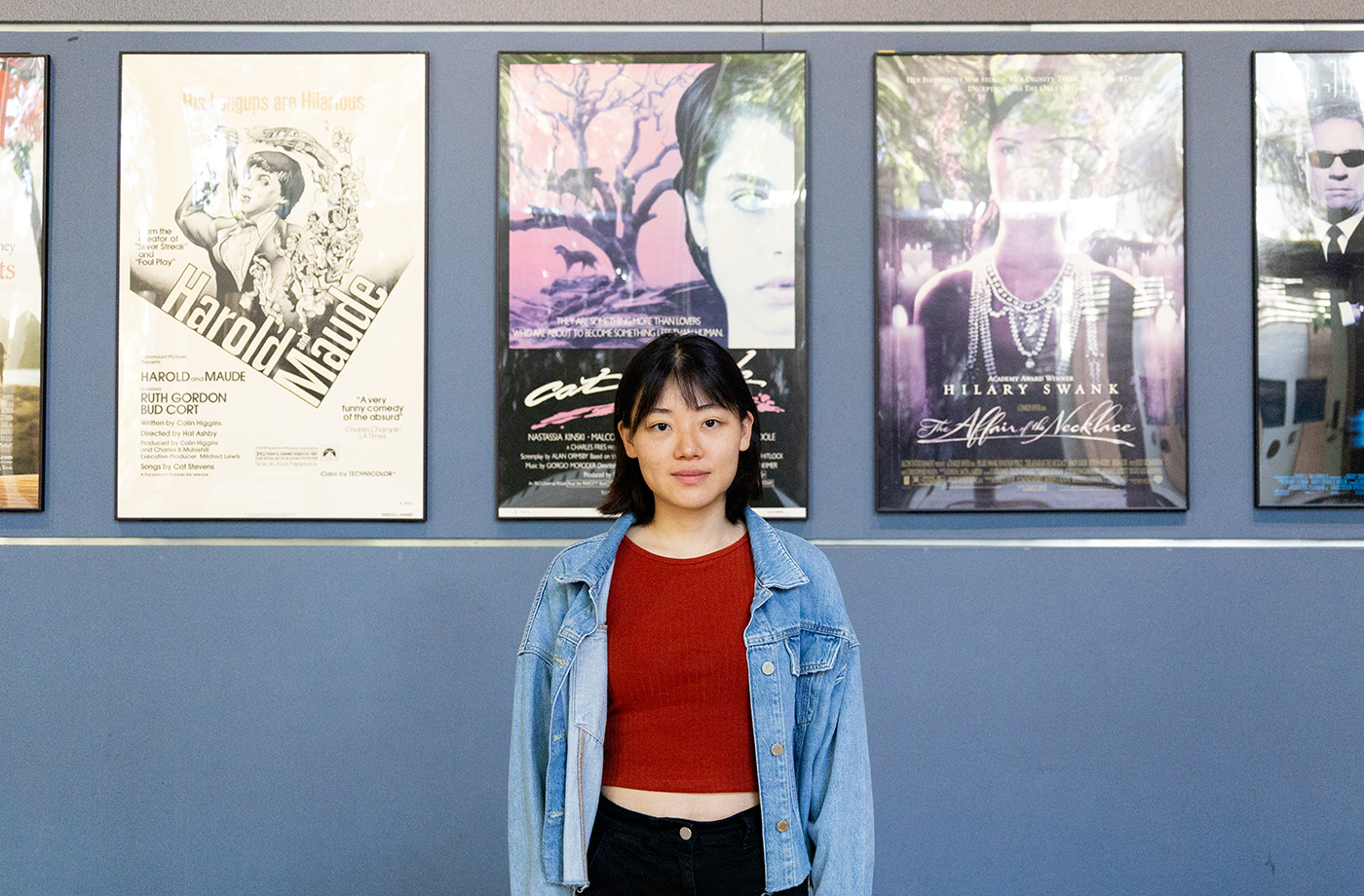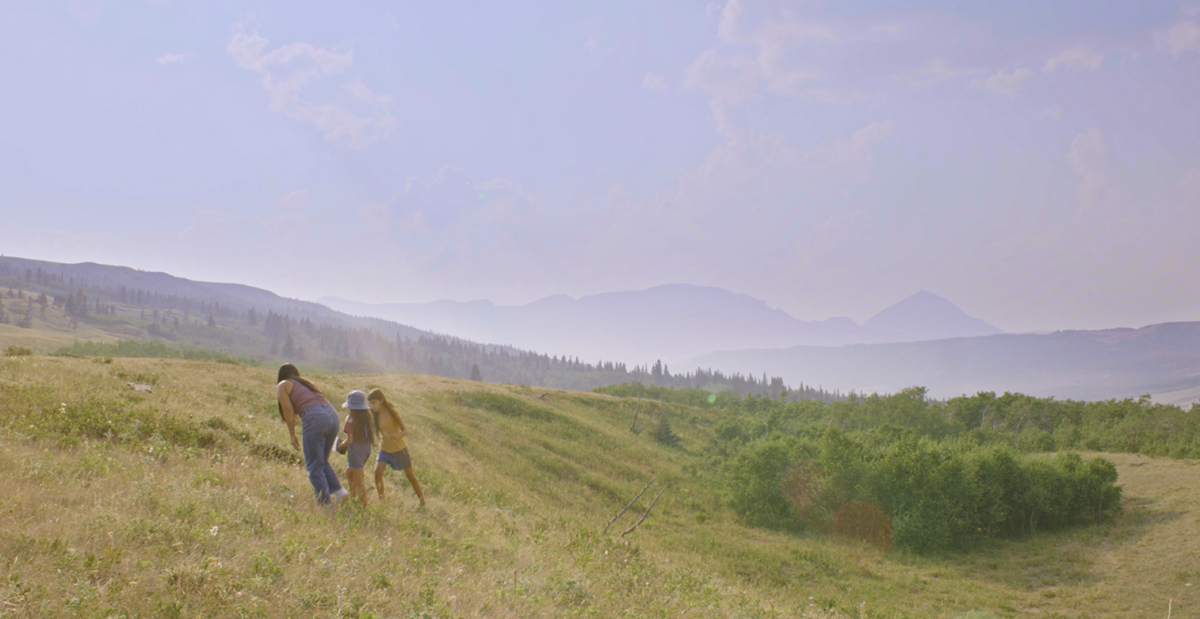Student-created short film centers on humanizing the Syrian refugee crisis
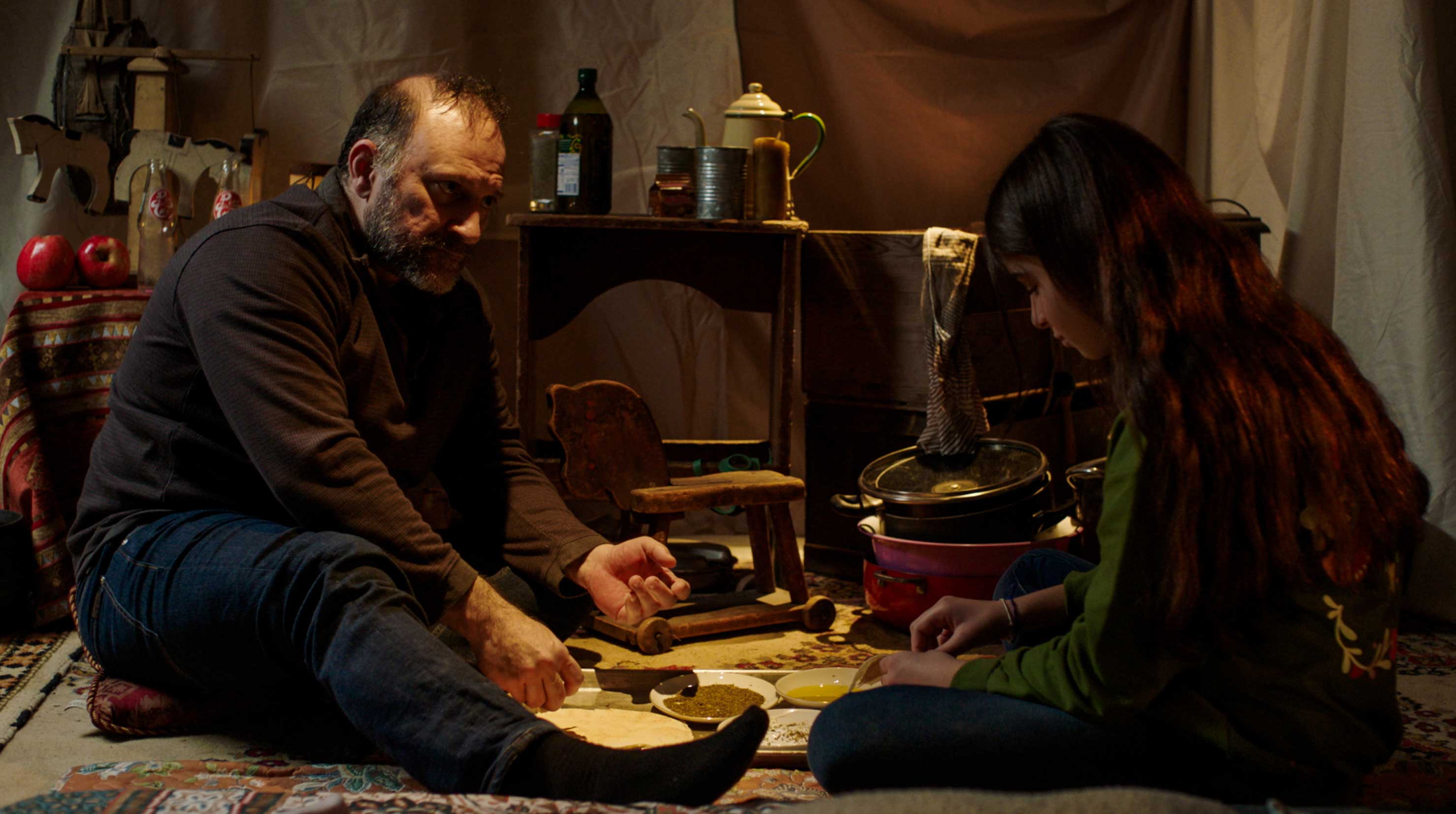
Laith Nakli (left) and Lamitta Saloum star as Ghaleb and Amal in “Bukra.” Fourth-year film student Alex Aljouni created the short film for her student thesis project. (Courtesy of Alex Aljouni)
By Maya Vibhakar
Feb. 8, 2024 5:02 p.m.
This post was updated Feb. 11 at 8:02 p.m.
Alex Aljouni is hitting close to home in her short film “Bukra.”
Aljouni, a Syrian-born filmmaker and fourth-year film student, chose to center her student thesis short film around the war in Syria and those displaced by the conflict. Unlike most films about the war which Aljouni said place more focus on violence, she said she wanted to create a film that centered around the people affected by the chaos, focusing instead on Syria’s humanity.
“When you look at films made about Syria, at least from my experience, what I’ve seen is really, really centered around the war,” Aljouni said. “It’s a lot about the bombings, the armed conflict, the violence of it all, which is very necessary to talk about, but there’s a point where we’re not talking about the people.”
[Related: ‘In the Garden of Tulips’: A tale of family and loss amid the Iran-Iraq War]
The title of the film – “Bukra” – is an Arabic word commonly used to refer to the future, especially when postponing something, Aljouni said. With the film focused on the Syrian refugee experience and the desire to strive for a better yet possibly unattainable future, Aljouni said “Bukra” seemed to be a fitting title. As she began writing the script, Aljouni said she chose to show the refugee experience story from a child’s perspective, drawing on her own experiences witnessing the war growing up. At 12 years old, she began seeing the conflict starting in the Middle East on the news, not long before the war broke out in Syria.
“At the time I asked my mom, ‘What if this happens in Syria?’” Aljouni said. “I still remember to this day, she said, ‘It’s not going to be good. It’s not going to be over until God knows when.’”
When the conflict eventually reached Syria, Aljouni said the magnitude of the war did not fully register with her. She said it was difficult to conceptualize its impact as a child until the armed forces reached her area and shut down the schools – though even then, she said she eventually became used to that life as her new reality.
Though there were times when the electricity would shut off for 12 hours a day, or she would have to check the news to weigh the risk of leaving the house, Aljouni said she still maintained the humor and hope that comes with being a child in adversity. She said the innocent perspective she held as a child inspired her to recreate that feeling in “Bukra.”
“Once I left Syria and came to the United States, these things started to (make me think), ‘Wow, how did I ever live like this? How was that my normal?’” Aljouni said. “That’s part of the reason why I chose kids, because their outlook on life is so hopeful.”
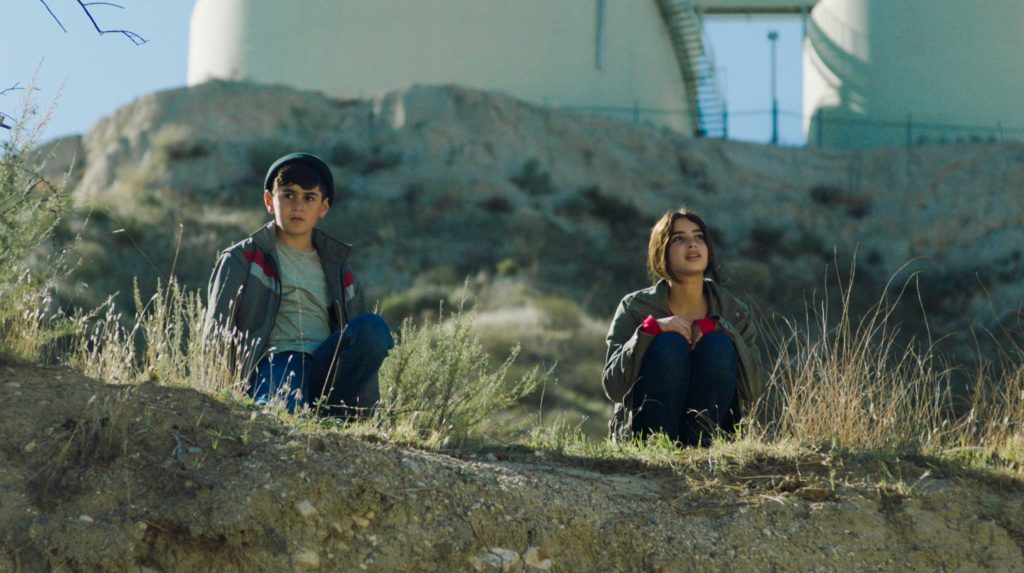
Ultimately, Aljouni said she chose to center “Bukra” around two Syrian children who preoccupy themselves by playing soccer in a refugee camp in Turkey. Adrian Clark, a fourth-year film student and producer of the film, said the children are faced with a small but mighty challenge after winning a brand new soccer ball in a soda cap sweepstakes. Amid the backdrop of the Syrian refugee crisis, Clark said the short film focuses on one of the children venturing into the city in an attempt to claim the soccer ball.
Though the little girl is faced with a variety of challenges when it comes to redeeming her prize, Clark said “Bukra” is a story of resilience, as the girl continues to return until she is able to collect the soccer ball. However, when the girl finally arrives back at the refugee camp with the ball, the film reveals that the girl’s friend has already left, since his family was finally able to get a job in a different city, he said.
“It really is a story about not losing sight of what’s important,” Clark said. “(The girl) can’t get the soccer ball, so she keeps coming back. She keeps solving the problems. What would be insignificant to you and me, to this little girl at the age of 10 or 11 is incredibly hard.”
From a technical standpoint, Akina Van de Velde, an alumnus of the film and television MFA program and the short film’s director of photography, said the camera angles utilized in “Bukra” also helped create the look of childhood innocence onscreen. With low-level shots that emulate a child’s eyeline, Van de Velde said the audience is able to witness the world from the little girl’s perspective and the way she views her situation as a refugee. Additionally, she said she and Aljouni used a variety of camera angles and movements to shift between the sheltered environment of the refugee camp and the vastness of the city once the girl ventures into the outside world.
“I think that it was just important for us to focus on these two kids, their character and grounded in their perspective,” Van de Velde said.
[Related: Emmys 2024: Alumnus Jerry Henry shares his experience working on ‘The 1619 Project’ docuseries]
As both writer and director of “Bukra,” Aljouni said she had to spend a lot of time making sure she was portraying the Syrian refugee crisis authentically. Although she had not been a part of a refugee camp herself, Aljouni said she asked friends, acquaintances and even people online about their experiences to help guide her writing process. She also said she worked diligently to write the script in Arabic and translate it into English for her team, while also directing the child actors – who were nonfluent in Arabic – on proper pronunciation and cadence.
With “Bukra” being her first experience directing children, Aljouni said there was a learning curve that came with working with kids, especially those who were new to acting. While adult actors often have their own style and techniques, she said she had to build that style with the child actors, all while keeping them engaged and willing to learn. However, she said the experience was ultimately a rewarding one since, as director, she felt like she was able to evoke a performance from the actors that brought the proper weight to the short film’s message about Syria’s refugees. Hoping to share the film’s humanizing message with the UCLA community and a a broader audience, Aljouni said the “Bukra” team has launched a UCLA Spark fundraising campaign as the project enters postproduction.
“I want people to see them for what they experience and not the events that they experienced,” Aljouni said. “For me, it’s about humanizing the Syrian refugee crisis.”



